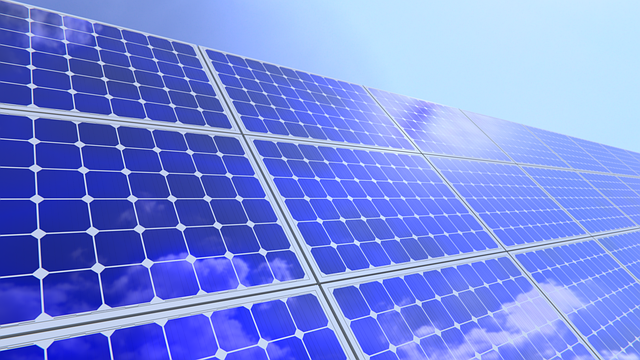Exploring Off-Grid Living with Solar Panels: Freedom from the Grid
As the world becomes increasingly aware of the ecological consequences of traditional energy sources and the need for sustainable living, more people are pursuing the idea of off-grid living. Among various solutions, solar energy has emerged as a leading option. This article delves into the concept of off-grid living powered by solar panels, the benefits it brings, the challenges faced, and practical tips for making the transition.
Understanding Off-Grid Living
Off-grid living typically refers to a lifestyle where individuals or families operate independently from municipal utilities. This self-sufficiency often includes producing one’s own power, gathering water, and sometimes even growing food. It represents a significant shift from the conventional way of life, where reliance on public infrastructure is the norm.
The Role of Solar Panels
Solar panels convert sunlight into electricity using photovoltaic cells. As a renewable energy source, solar power is a crucial component for many people looking to live off the grid. The sun’s energy is plentiful and free, making solar panels an ideal option for those aiming to cut ties with the utility grid.
How Solar Panels Work
Solar panels consist of many small solar cells, typically made from silicon. When sunlight hits these cells, it excites electrons, causing them to flow and generate electricity. This electricity can then be used to power everything from home appliances to heating systems. In an off-grid setup, users can store excess energy in batteries for use during times when sunlight is not available, such as during cloudy days or at night.
The Freedom of Off-Grid Solar Living
One of the most compelling aspects of off-grid living with solar panels is the freedom it offers. Here are some of the key freedoms associated with this lifestyle:
Autonomy from Utility Companies
Living off the grid means you are not beholden to rising energy prices or outages caused by extreme weather. Your energy supply is self-generated, allowing you ultimate control over your power usage and expenses.
Environmental Impact
Solar energy is one of the cleanest forms of energy. By generating power through solar panels, individuals contribute to reducing greenhouse gas emissions, thus playing a part in combating climate change. This lifestyle often extends beyond energy to include sustainable practices like permaculture, rainwater harvesting, and natural building techniques.
Connection to Nature
Off-grid living usually means residing in a remote or rural area, offering a closer connection to nature. This lifestyle fosters a deeper appreciation for the environment and the ecosystems surrounding you, promoting mental and physical well-being.
Benefits of Solar Panels for Off-Grid Living
While autonomy and environmental benefits are substantial, solar panels provide a range of advantages that enhance the off-grid experience:
Cost Savings
After the initial investment in solar panel systems and batteries, homeowners can enjoy significant long-term savings on their energy bills. By generating your own electricity, you can dramatically decrease your reliance on commercially generated power.
Low Maintenance Requirements
Solar panels generally require little maintenance after installation. Unlike combustion-based power systems, which may require regular inspections and replacements, solar panels usually only need periodic cleaning and occasional checks to ensure they are functioning correctly.
Energy Independence
Having your own power supply translates into energy independence. In rural areas where utility access might be limited, solar panels dramatically enhance the feasibility of living off-grid. This independence is empowering as it liberates individuals from the grid’s constraints.
Challenges of Off-Grid Solar Living
While off-grid living with solar panels presents many advantages, there are challenges that individuals may encounter:
Initial Costs
Although long-term savings can be substantial, the upfront costs of solar panel installation and the necessary equipment (like batteries and inverters) can be considerable. This investment requires careful planning and budgeting.
Energy Storage Limitations
Solar energy generation is contingent upon sunlight, making energy storage crucial in off-grid systems. The efficiency and lifespan of batteries can be limiting factors, leading to challenges in ensuring constant power supply during low-sunlight periods.
Space Requirements
Solar panels require significant space for installation. This can be an issue for those with limited land or unfavorable roof orientations. On the other hand, expansive properties can be advantageous in maximizing solar energy absorption.
Transitioning to Off-Grid Solar Living
Making the shift to off-grid solar living involves careful consideration and planning. Here are some practical steps to facilitate the transition:
Site Assessment
Before investing in solar panels, assess your potential site for sunlight exposure. Ideally, choose a location that receives unobstructed sunlight for most of the day. Additionally, consider factors like proximity to water sources and access roads for maintenance and supplies.
Determine Energy Needs
Understanding your energy consumption is essential. Conduct an energy audit to determine how much electricity your household uses—this will help dictate the size of the solar panel system required. Look into energy-efficient appliances and practices to minimize overall consumption.
Choosing the Right Equipment
Research and select appropriate solar panel equipment that meets your needs. Consider factors like efficiency, warranties, and compatibility with battery storage systems. Consulting with reputable solar providers or experts can guide your choices significantly.
Installation and Maintenance
Decide whether to hire professionals for installation or attempt a DIY approach. It is crucial to ensure that safety standards and building codes are met. Regular maintenance checks will help extend the life of your solar panels and ensure consistent energy generation.
Conclusion
Off-grid living powered by solar panels offers a unique opportunity to break free from the constraints of traditional utility systems. While it requires an initial investment and a commitment to sustainable practices, the benefits of autonomy, environmental impact, and connection to nature make the journey worthwhile. As technology continues to advance and the world pivots towards renewable resources, engaging with solar energy as part of an off-grid lifestyle can pave the way for a more sustainable and fulfilling future.



